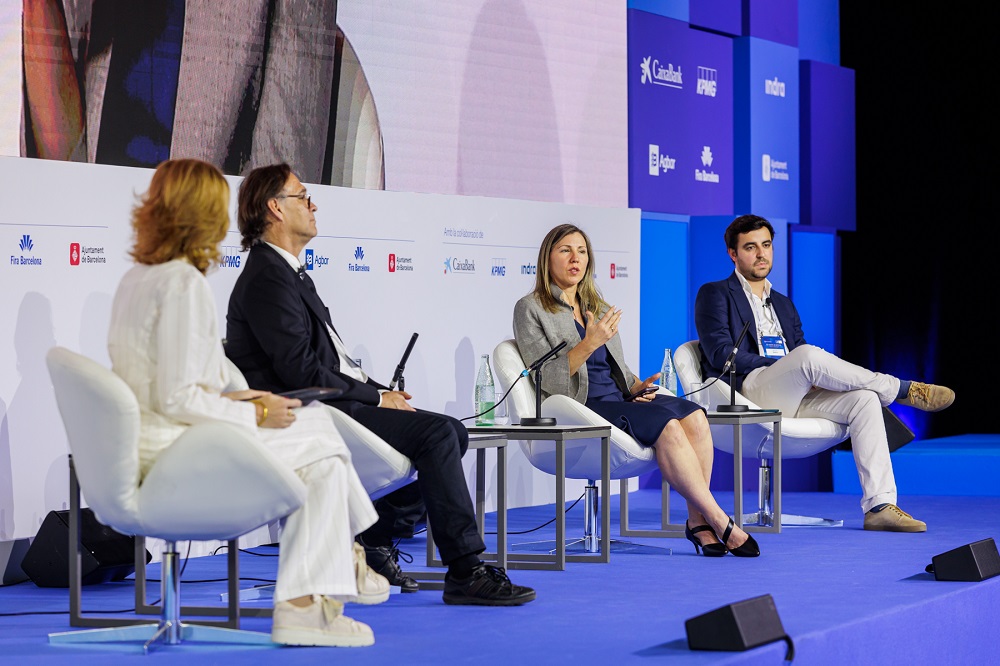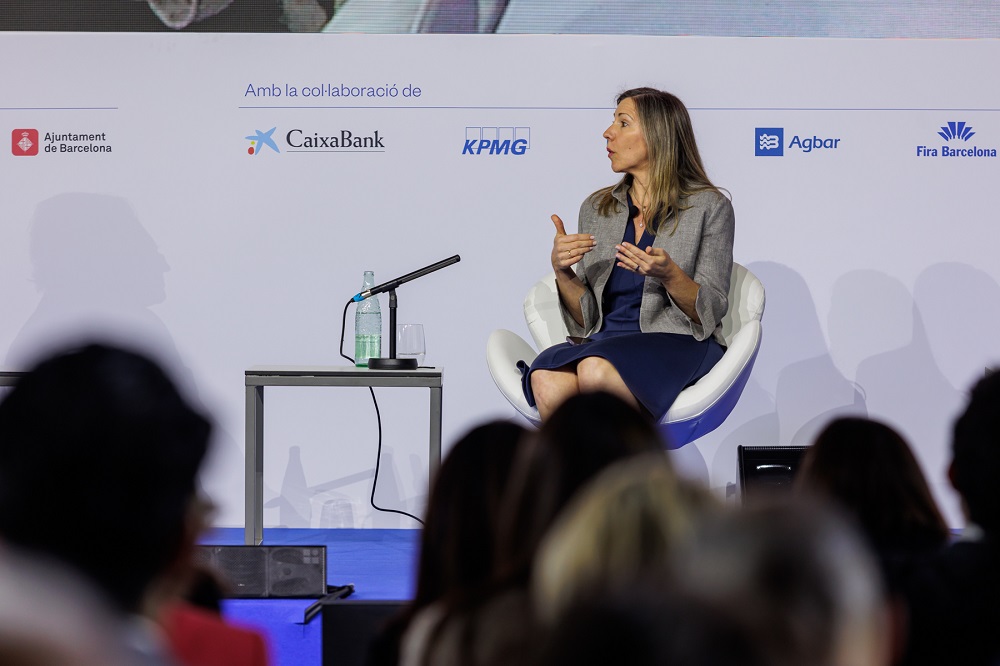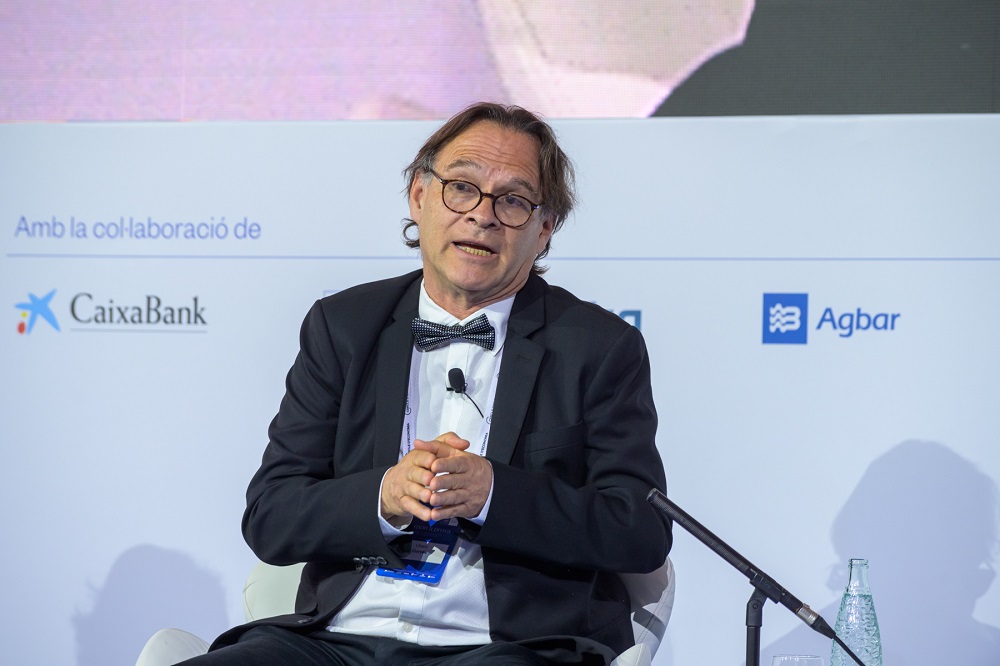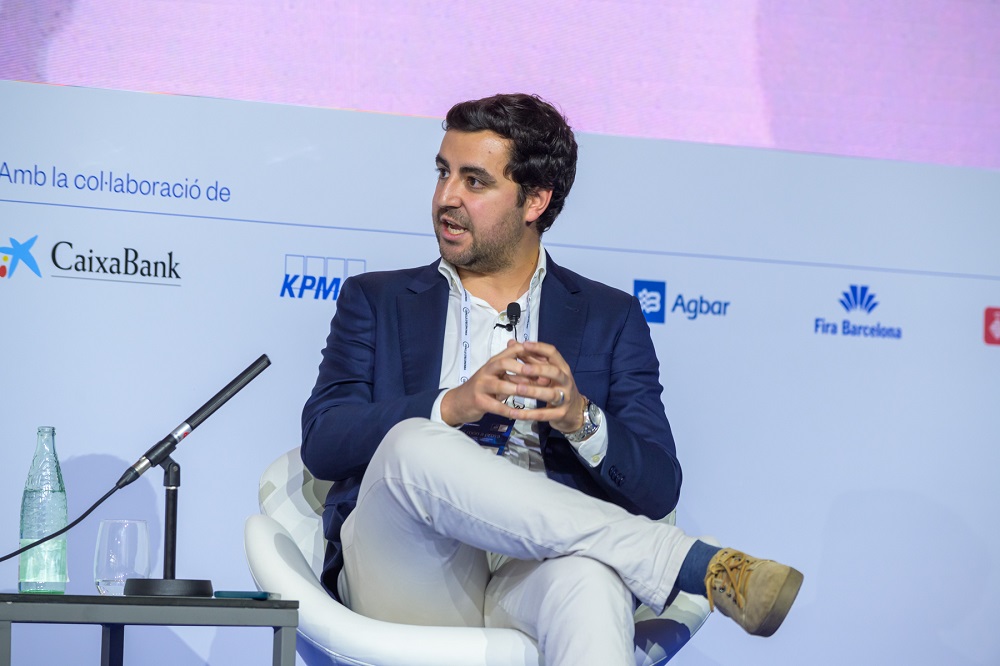Laura Urquizu, member of the Board of Directors of Cercle d'Economia and moderator of the session, focused the round table in a "global approach" to Artificial Intelligence (AI) that visualises the effects of its introduction and generalisation in the business world and, also, in terms of productivity: "When and how should a company implement Artificial Intelligence?", asked the speakers.

Ignacio Melero, Azure App Innovation & Developer at Microsoft, said that technology, whatever it is, "must solve problems and must generate some kind of return to the company" and that, therefore, it is from this double perspective that the 'when' raised by Urquizu can be answered. On the 'how', he defended those tools that "fall directly into the field of productivity". And, in any case, "avoid technological hype" and consider "privacy and ethics".
Ariadna Font, co-founder and CEO of Alinia, defended that "we have to consider that not because it can be done, it should be done". She established a general limitation on the use of AI – "avoid delegating to machines those decisions that affect people's lives" – and the need to "understand the technology". She advocated for a "responsible" AI that "operates safely and respecting values, policies and regulations" and warned of the "algorithm biases" acquired during its learning process.
Ulises Cortés, professor of Artificial Intelligence at the UPC and director of the High-Performance Artificial Intelligence group at the Barcelona Supercomputing Centre, was critical: "It is a type of tool that has not been certified from the outset, we do not know if it really works". And added: "Why will these tools on the market, apparently free and that no one has certified, be the panacea to solve the industrial problems of the future?" At the same time, he vindicated the asset of the country's "scientific and technological capacity" and cited the European AI Factories initiative that will allow " machines for small and medium-sized companies".

Computing and sustainability
The discussion turned to the areas of computing capacity and environmental aspects linked to the intensive use of AI. In the specific field of generative AI (ChatGPT's own, for example), Melero contrasted the Large Language Model (LLM) with the Small Language Model (SLM) – the latter, smaller, more fine-tuned for more specific tasks and without the problem of heating associated with the LLM. Cortés cited the supercomputers Dojo (Tesla) and Stargate (OpenAI and Microsoft) and recalled that "Bill Gates is one of the big investors in small nuclear plants." And it is that "where there is a supercomputing centre and there is no electricity production capacity, a nuclear plant will have to be installed," said the UPC professor.
Font warned of the impact of computing and AI in the field of sustainability. She did so with the contribution of the following data: "I think there are about 200 million daily queries on ChatGPT-4. And each consultation is equivalent, approximately, to having a LED bulb on for an hour". For his part, Ulises Cortés noted that "here we are only talking about electricity, but the other aspect is that of water: because these systems have to be cooled. We have a very serious problem here."

Productivity, skills, professional retraining and technological sovereignty
At another point in the session, the member of the Board of Directors of Cercle d'Economia Laura Urquizu stated that "there are industrial sectors or production processes that clearly benefit" from AI in some of its manifestations or applications. She then asked the speakers: "Is there any sector that can suffer from AI? Are there tasks that could be negatively affected by this technology?".
The co-founder and CEO of Alinia wanted to share a message of confidence: "AI is a tool and as such it must be used to expand human intelligence, human capabilities. It depends on all of us, entrepreneurs, technologists, but also on society as a whole, how and when it should be applied." She stated that "the good thing is that it contributes to increasing the productivity of the company" and that, in any case, its adoption must also be contemplated through the perspective of learning, the acquisition of skills and the professional retraining of workers.
The Microsoft representative defended that Artificial Intelligence and generative AI, will have a "very positive impact on our day-to-day lives" in the field of productivity and that this will be the case practically in general.
Ulises Cortés provided a geographical (or geopolitical) point of view: "If in Europe we do not have the capacity to develop technology, our technological sovereignty will be greatly affected, and we will always depend on third parties who will sell their technology". He advocated for a "powerful industry" in Europe that, in addition, generates its own model that is aligned with the values of justice, democracy and environmental responsibility.

Innovation and regulatory environments
The three speakers were in favour of AI regulation and applauded the European Union's "leadership" in this field. But they warned of the danger of the emergence of "technological oases" derived from the coexistence of highly regulated jurisdictions with little or no regulation in the matter. The shared recipe: "Look for the middle ground", to prevent "some from innovating too quickly to the detriment of others". Cortés pointed out the "asymmetry in the size of the investment" in terms of innovation in AI if it is analysed in comparative terms between several countries or economic areas. And they also shared, moderator and group of speakers, the idea that "Artificial Intelligence is and will be a competitive advantage" for companies.